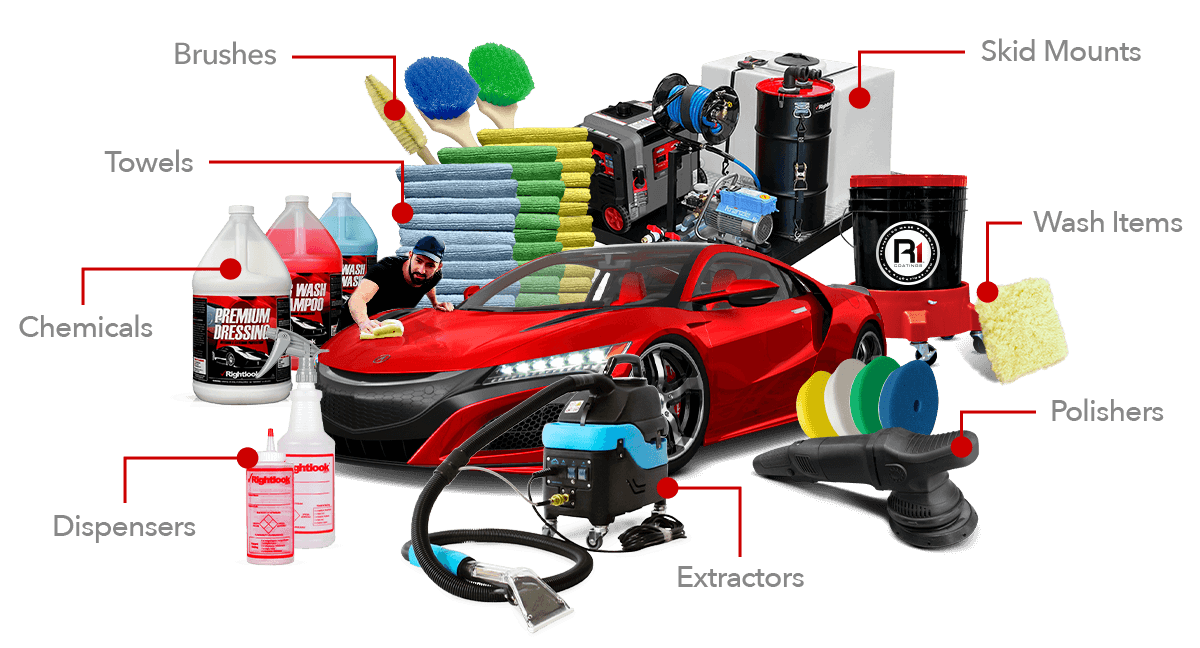Table of Contents

Introduction
Finding a reliable car mechanic can be a daunting task, especially when your vehicle is in need of urgent repair or maintenance. With so many options available, it’s crucial to make an informed decision to ensure your car receives the best care possible.
This article aims to guide you through the process of selecting a top-notch car mechanic in your area. From understanding the qualities of a good mechanic to knowing what questions to ask, we’ll provide expert tips and advice to help you make the best choice for your vehicle’s needs.
Reliability and Trustworthiness
A reliable mechanic is someone you can depend on to complete repairs accurately and on time. Trustworthiness means the mechanic provides honest assessments and fair pricing without attempting to upsell unnecessary services.
- Honesty: Look for mechanics who explain issues clearly and provide honest assessments.
- Punctuality: Reliable mechanics complete jobs within the agreed timeframe.
- Reputation: A trustworthy mechanic often has positive reviews and recommendations from other customers.
Experience and Expertise
Experience and expertise are critical for a car mechanic. An experienced mechanic has likely encountered a wide range of issues and knows how to address them efficiently. Years of Service: Mechanics with several years in the field generally have more hands-on experience.
- Specialization: Some mechanics specialize in certain types of vehicles or repairs, which can be beneficial depending on your car’s needs.
- Problem-Solving Skills: Experienced mechanics can often diagnose and fix problems more quickly than less experienced ones.
How to Research and Compare Mechanics
Finding the right car mechanic requires thorough research and comparison. Here are some detailed steps to help you identify the best mechanics in your area:
Reading Online Reviews and Ratings
Online reviews and ratings can provide valuable insights into a mechanic’s reputation and the quality of their work. Look for patterns in the feedback to get a sense of their strengths and weaknesses.
- Review Platforms: Websites like Google Reviews, Yelp, and Angie’s List are good places to start. These platforms often provide detailed reviews and star ratings from customers.
- Specific Feedback: Pay attention to detailed reviews that describe specific experiences. Look for comments about the mechanic’s reliability, expertise, and customer service.
- Response to Reviews: Notice how the mechanic or shop responds to negative reviews. Professional and courteous responses indicate good customer service.
Questions to Ask Potential Mechanics
When choosing a car mechanic, asking the right questions can help you determine their suitability for your needs. Here are some key questions to consider, along with detailed explanations of what to look for in their answers:
What types of services do they offer?
Understanding the range of services a mechanic offers is crucial to ensure they can meet all your car maintenance and repair needs.
- Routine Maintenance: Ask if they provide basic services like oil changes, tire rotations, and brake inspections. These routine tasks are essential for keeping your car in good condition.
- Diagnostics and Repairs: Inquire about their ability to diagnose and fix a variety of issues, from minor problems to major repairs. It’s important to know if they can handle engine repairs, transmission work, electrical issues, and more.
- Specialized Services: Check if they offer specialized services such as air conditioning repair, alignment, and custom modifications. This is particularly important if your car requires specific expertise.
What are their specialties?
Some mechanics have particular areas of expertise or specialize in certain types of vehicles, which can be beneficial depending on your car’s needs.
- Vehicle Types: Ask if they specialize in certain makes and models. Mechanics with experience in your car’s brand can often provide more accurate diagnostics and repairs.
- Specific Repairs: Inquire if they have expertise in specific types of repairs, such as transmission work, diesel engines, or hybrid vehicles. Specialization can lead to more efficient and effective service.
- Technology and Tools: Ask about their familiarity with the latest automotive technologies and tools, which can be crucial for newer vehicles with advanced systems.
Can they provide references or testimonials?
References and testimonials can offer valuable insights into the mechanic’s reliability and quality of work.
- Customer References: Request contact information for previous customers who can share their experiences. Speaking directly with former clients can provide honest feedback.
- Online Testimonials: Look for testimonials on their website or social media pages. Positive reviews and success stories can indicate a high level of customer satisfaction.
- Case Studies: Some mechanics might share detailed case studies or examples of challenging repairs they have successfully completed, demonstrating their expertise and problem-solving skills.
Signs of a Reputable Mechanic Shop
Selecting a reputable mechanic shop can ensure your vehicle receives top-notch service and care. Here are some key signs to look for when evaluating a mechanic shop:
Clean and Organized Work Environment
A clean and organized shop reflects professionalism and attention to detail. It indicates that the mechanics take pride in their work and maintain a standard of excellence.
- Work Area: The shop floor should be free of clutter, with tools and equipment neatly arranged. This minimizes the risk of accidents and ensures efficient workflow.
- Waiting Area: The customer waiting area should be clean and comfortable, showing that the shop values customer comfort and experience.
- Overall Appearance: A well-maintained shop exterior and interior signal that the business cares about its image and, by extension, the quality of its services.
Transparent and Fair Pricing
A reputable mechanic shop is upfront about its pricing and provides clear, itemized estimates.
- Written Estimates: Before any work begins, the shop should offer a written estimate detailing the costs of labor, parts, and any additional fees. This helps prevent surprises and ensures you understand what you are paying for.
- No Hidden Fees: The shop should be transparent about all charges. Ask if there are any diagnostic fees or other potential costs that may not be included in the initial estimate.
- Competitive Pricing: While pricing should be fair, it should also be competitive with other shops in the area. Extremely low prices can sometimes indicate subpar service or the use of low-quality parts.
Use of Quality Parts and Tools
The use of high-quality parts and tools ensures that repairs are done right the first time and last longer.
- OEM and High-Quality Parts: Ask if the shop uses Original Equipment Manufacturer (OEM) parts or high-quality aftermarket parts. Using quality parts is crucial for the longevity and performance of your vehicle.
- Modern Tools and Equipment: A reputable shop will invest in the latest diagnostic tools and repair equipment. This allows for more accurate diagnoses and efficient repairs.
- Skilled Technicians: The mechanics should be well-trained and knowledgeable about the latest automotive technologies and repair techniques. Certification and ongoing training are good indicators of their skill level.
Understanding Service Estimates and Invoices
Grasping the details of service estimates and invoices is crucial for ensuring transparency and avoiding unexpected costs when dealing with car repairs. Here’s a thorough guide to understanding these documents:
Breaking Down the Components of a Service Estimate
A service estimate provides a detailed forecast of the costs associated with a specific repair or maintenance service. Understanding each component helps you evaluate the fairness of the estimate.
- Labor Costs: This section details the cost of the mechanic’s time. Labor is typically charged per hour, so the estimate should specify the expected number of hours required for the job.
- Parts Costs: This part lists the costs of any parts that need to be replaced or installed. Each part should be itemized with its individual price.
- Additional Fees: Sometimes there are additional charges for shop supplies, disposal fees for old parts or hazardous materials, and diagnostic fees. These should be clearly listed.
- Tax: The estimate should include applicable taxes based on your location.
Identifying Potential Red Flags in an Invoice
An invoice is the final bill you receive after the services have been completed. It’s important to scrutinize it to ensure you were charged fairly and correctly.
- Unlisted Charges: Be wary of any charges that were not included in the original estimate. Any additional costs should have been communicated and approved by you beforehand.
- Unclear Descriptions: Charges should be described clearly and specifically. Vague terms or unclear language can indicate unnecessary or fraudulent charges.
- Duplicated Charges: Ensure that each service and part is listed only once. Duplicate charges for the same item or service are a common mistake or an attempt to inflate the bill.
- Excessive Labor Charges: Compare the labor hours charged with the original estimate. Significant discrepancies should be questioned and justified.
The Importance of Regular Maintenance
Regular maintenance is essential for keeping your vehicle in top condition, ensuring safety, reliability, and longevity. Here’s an in-depth look at why routine maintenance matters, common tasks involved, and how to maintain a log for your vehicle:
Benefits of Routine Car Maintenance
Routine car maintenance provides numerous benefits that help preserve the performance and value of your vehicle.
- Improved Safety: Regularly checking and servicing critical components like brakes, tires, and lights ensures your vehicle operates safely, reducing the risk of accidents.
- Enhanced Performance: Maintenance tasks such as oil changes, filter replacements, and tire rotations keep your engine running smoothly and efficiently, improving overall performance.
- Extended Lifespan: Consistently caring for your car can significantly extend its lifespan, preventing premature wear and tear on key components.
Common Maintenance Tasks and Their Frequency
Understanding the common maintenance tasks and their recommended frequency can help you stay on top of your vehicle’s needs.
- Tire Rotation: Every 6,000 to 8,000 miles to ensure even tire wear and extend tire life.
- Brake Inspection: Check every 12,000 miles or annually. Regular inspection ensures brake components are functioning correctly and safely.
- Fluid Checks and Replenishment: Includes engine oil, coolant, brake fluid, power steering fluid, and transmission fluid. These should be checked regularly and topped off as needed.
How to Keep a Maintenance Log for Your Vehicle
Keeping a maintenance log helps you stay organized and ensures you don’t miss important service intervals.
- Record Keeping: Use a dedicated notebook, spreadsheet, or maintenance log app to track all maintenance activities.
- Detail Entries: For each maintenance task, note the date, mileage, type of service performed, and any parts replaced. Include the name of the service provider if you use a professional mechanic.
- Save Receipts: Keep all receipts and invoices from services and parts purchases. This documentation can be valuable for warranty claims and resale purposes.
Conclusion
Regular maintenance is crucial for ensuring the longevity, performance, and safety of your vehicle. Understanding the common maintenance tasks and their recommended frequency helps you stay proactive in caring for your vehicle, while keeping a detailed maintenance log ensures you track all necessary services and repairs.
A well-maintained car is not only a more enjoyable and safer ride but also a sound financial investment. Prioritizing regular maintenance ultimately leads to a better-performing vehicle and a more satisfying ownership experience.








